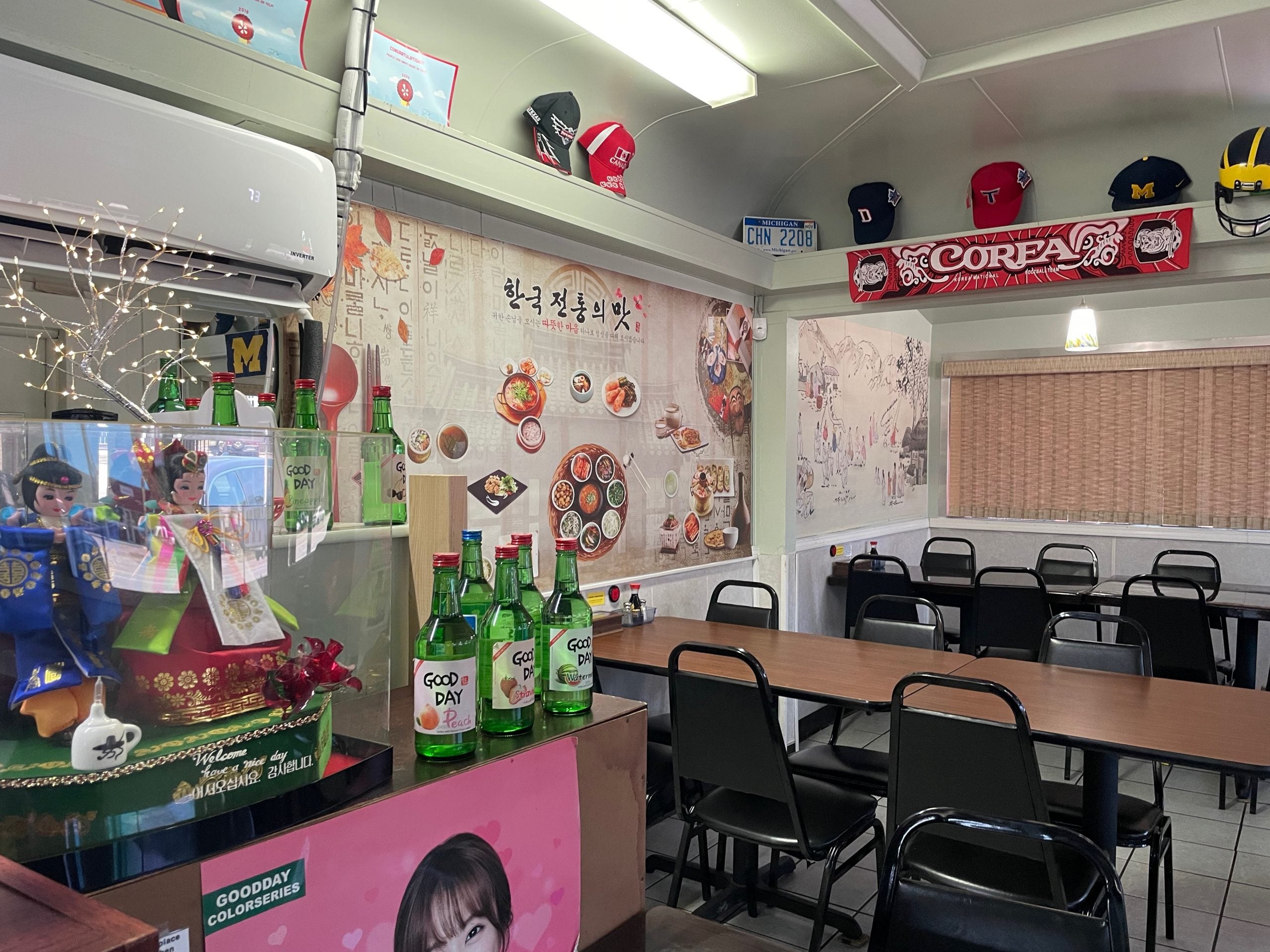My friend Moshi Moshii recently celebrated his birthday with cousins at a local Korean restaurant, posting photos of luscious bulgogi and spicy pork. When I ran into him at a performance of Cinderella at the Imperial Theatre, he agreed it was delish. “But have you tried Happy House?” he asked.
A few weeks later, my friend Amber texted about getting together for lunch on a rare day off from kids. “Happy House Korean?” she wrote.
It felt like fate.
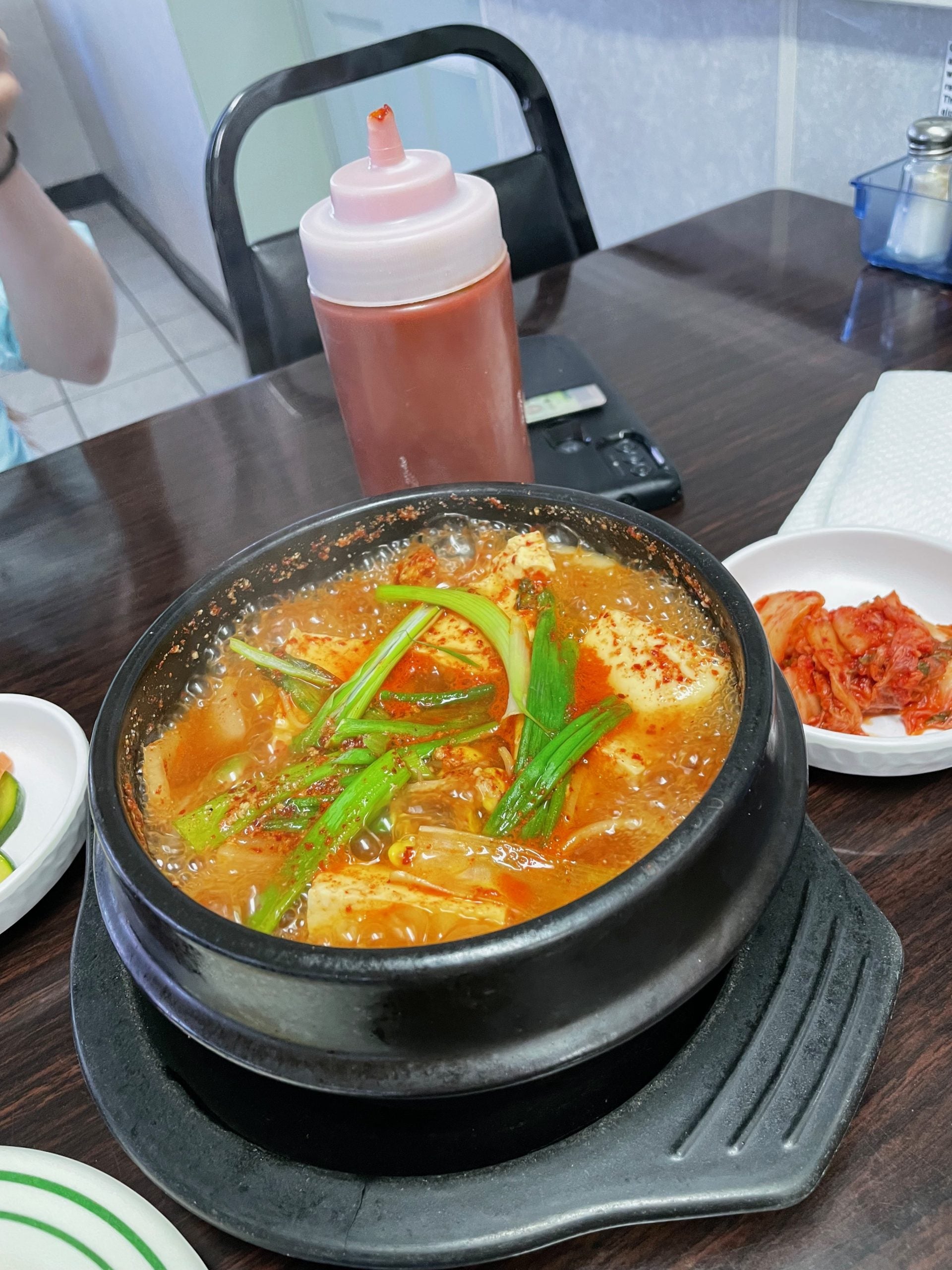
It had been years since I’d visited Happy House in south Augusta, a rough-around-the-edges, authentic Korean diner. It was the same dirty white on the outside, with utilitarian black chairs and white walls inside, relieved by colorful posters of smiling models proffering various Korean drinks. But the aroma? Scents of grilled meats and Asian spices were so tempting I kept craning my head to spy the dishes.
My favorite Korean foods tend to be those that are most popular—Moshi Moshii’s bulgogi and spicy pork for example. But this time, I wanted to try something different, and Amber, who had lived overseas in the spicy Hunan region of China, was more than game.
Korean cuisine tends to rely on spice and fermentation—kimchi, anyone?—along with main-dish soups, rice dishes, grilled meats, seafood and more. Happy House offers all those and more, including appetizers such as edamame, shumai (Chinese steamed dumplings) and rice cakes; main dishes such as pan-fried mackerel or panko-breaded chicken or pork; soups filled with everything from beef, pork or seafood to intestines and ribs; stirfries; and noodle dishes, such as ramen. There’s also hot pot for two, where a server brings a simmering bowl of broth and raw ingredients so you create your own custom soup.
“I love hot pot!” we both exclaimed at nearly the same time. But this was lunch, and time was short. So we turned to our server: “What’s something traditional?” we asked.
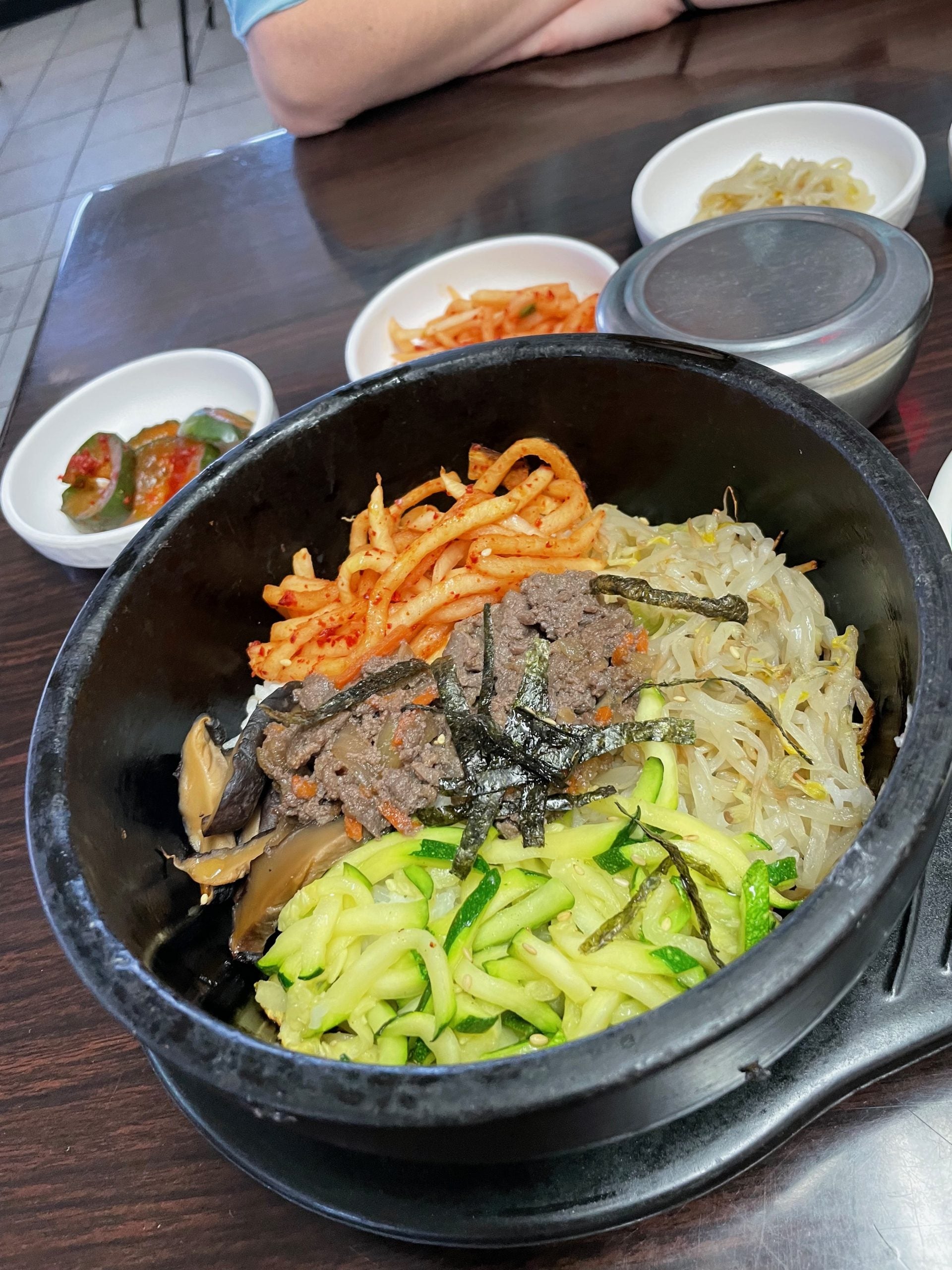
She looked thoughtful, then pointed to the fish egg soup. I gulped. “It’s what the older Korean people order,” she assured me. OK—fair enough. That along with the bibimbap—a bowl of rice with assorted vegetables and beef, with an egg, fried hard by my request—completed our order.
Amber also asked for hot water, which she said was commonly served in China. While Happy House doesn’t just serve hot water, it does offer barley tea—which is served warm with just a hint of nutty, earthy flavor.
When our waitress brought our likewise steaming bowls, Amber reached over to the covered box on our table for serving spoons, and we dug in. The fish egg soup was served at medium spice at my request, and it was perfect, still spicy but not so hot that I wanted to gulp water. The fish eggs came in large greyish cooked clumps that had a grainy texture when you bit into them and an appropriately fishy taste. I have to admit—I wasn’t sure I liked it at first bite, but it grew on me. The soup also included rectangles of slightly sweet tofu and soft shreds of vegetables.
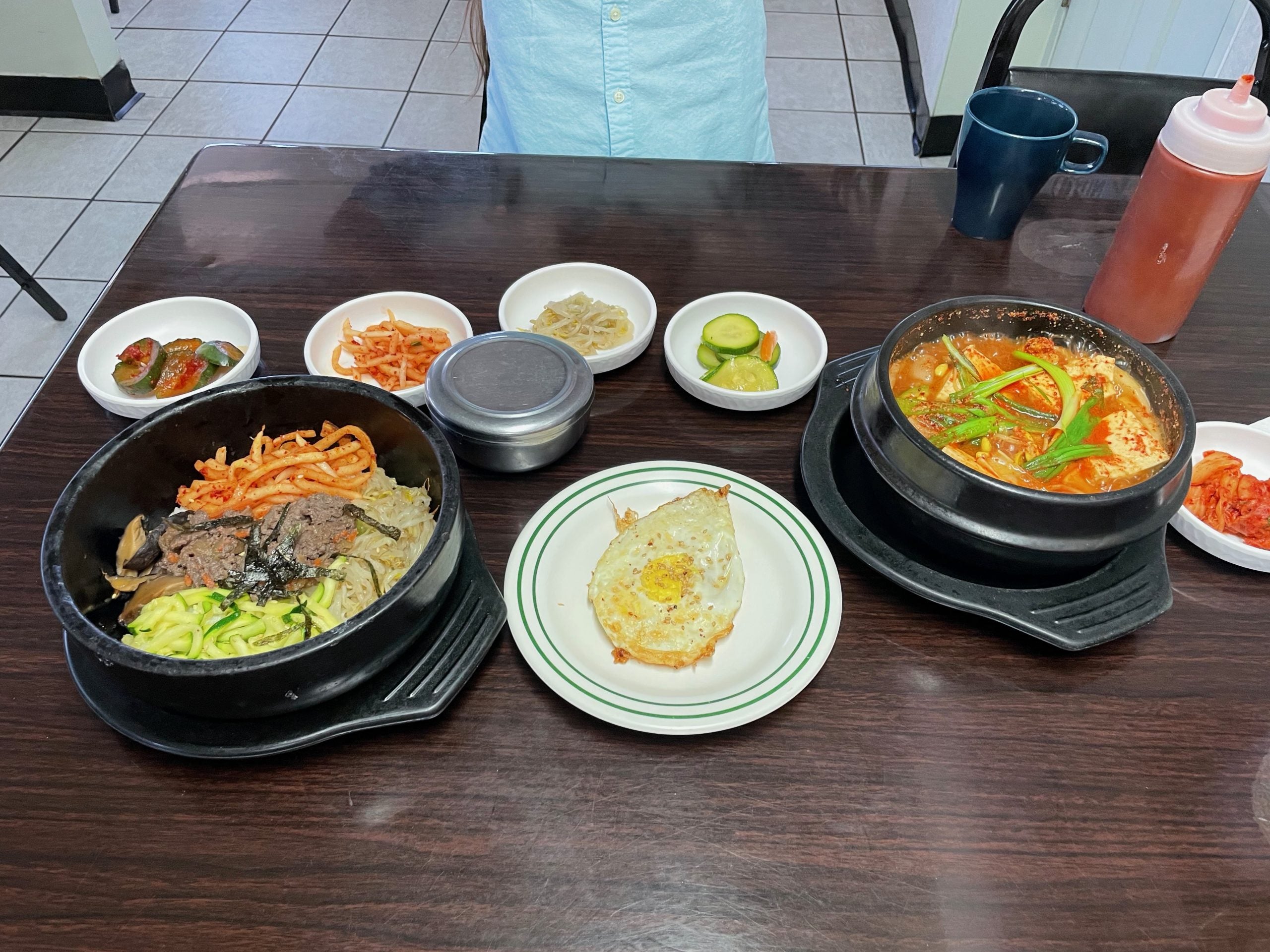
The bibimbap was also a work in textures: slightly sweet, crumbly meat; noodle-like zucchini and other vegetables; and crispy rice. A bottle of savory/spicy red sauce is served alongside—don’t forget to add it for the classic bibimbap flavor. We also sampled the four small dishes of banchan—Korean appetizers or side dishes—that offered the texture and flavor of spicy fermented vegetables.
As we talked, I kept chasing tasty bits in the bowls, looking for my favorite bites. Happy House certainly fulfilled its name that day—and then some.
Make Your Reservation
Happy House
3008 Deans Bridge Rd.
Open Tuesday to Sunday, 11 a.m. to 9 p.m.
Entrée cost: $12.99 to $47.99
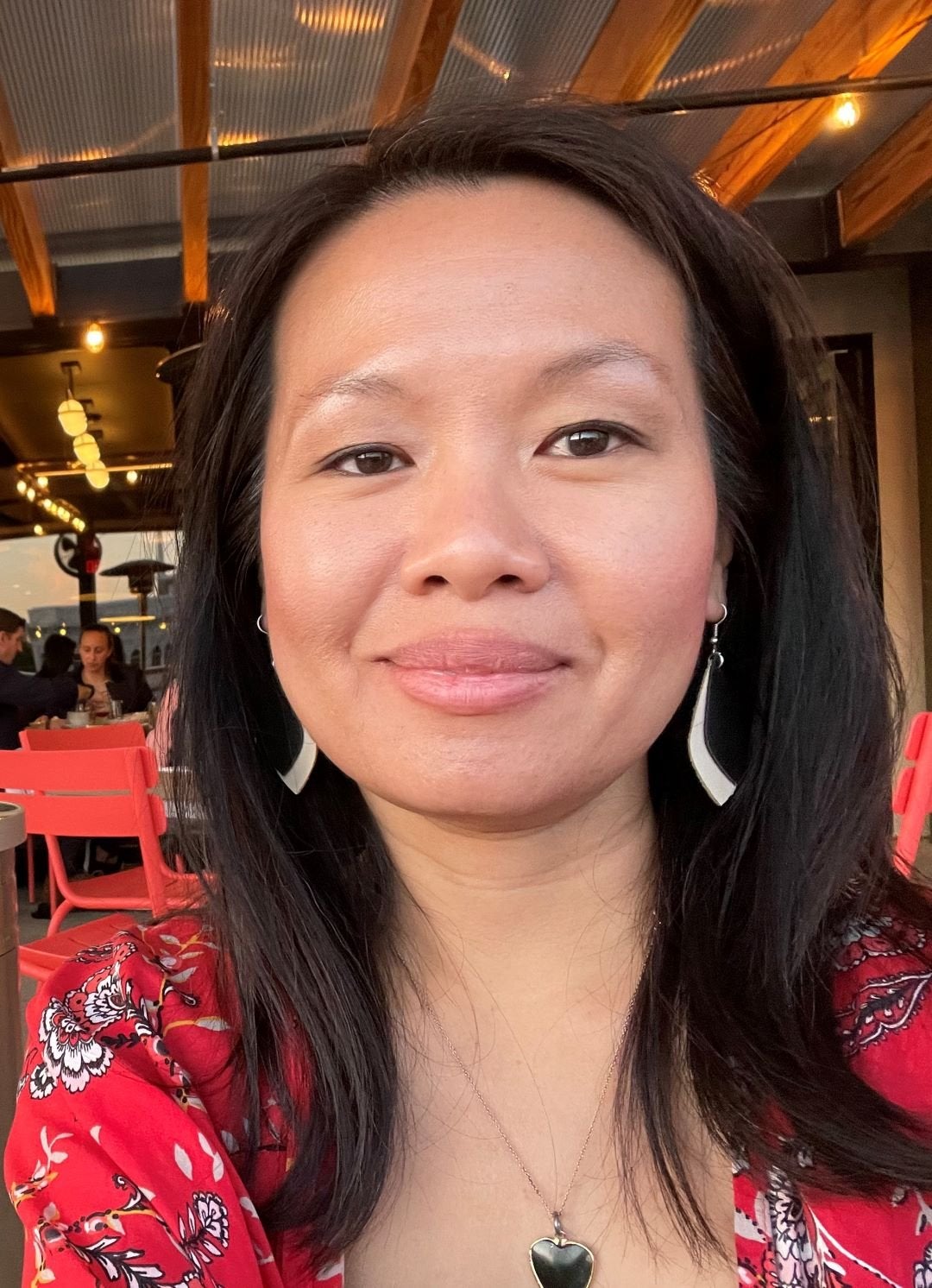 Danielle Wong Moores is a local freelance writer who’ll never turn down a shrimp cocktail, sushi or cheese dip. Her greatest food influences are her mom and writers MFK Fisher and Amanda Hesser. Her Dine and Dish column runs the second and fourth Fridays in The Augusta Press.
Danielle Wong Moores is a local freelance writer who’ll never turn down a shrimp cocktail, sushi or cheese dip. Her greatest food influences are her mom and writers MFK Fisher and Amanda Hesser. Her Dine and Dish column runs the second and fourth Fridays in The Augusta Press.

